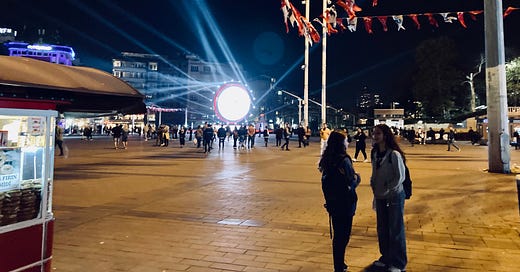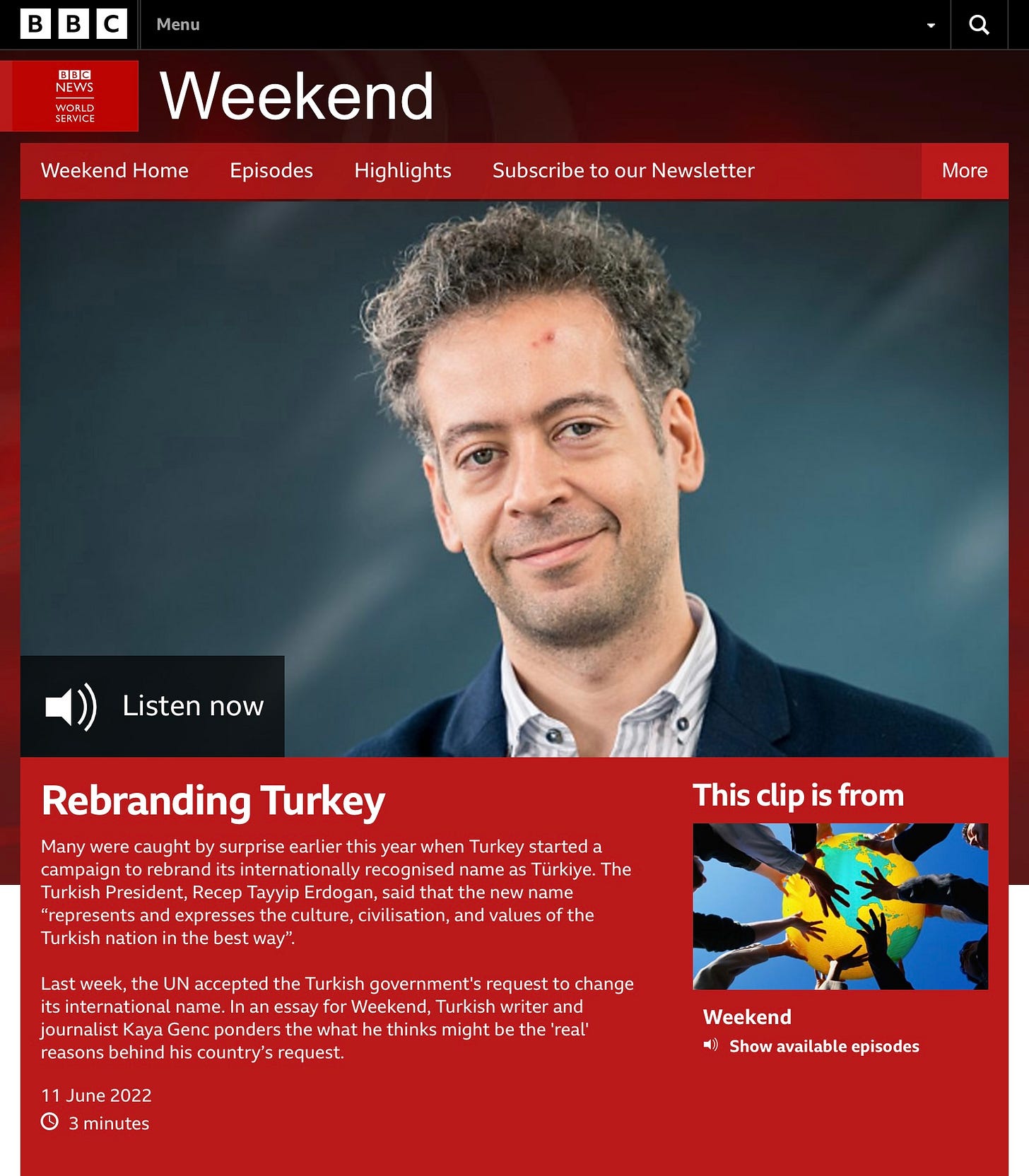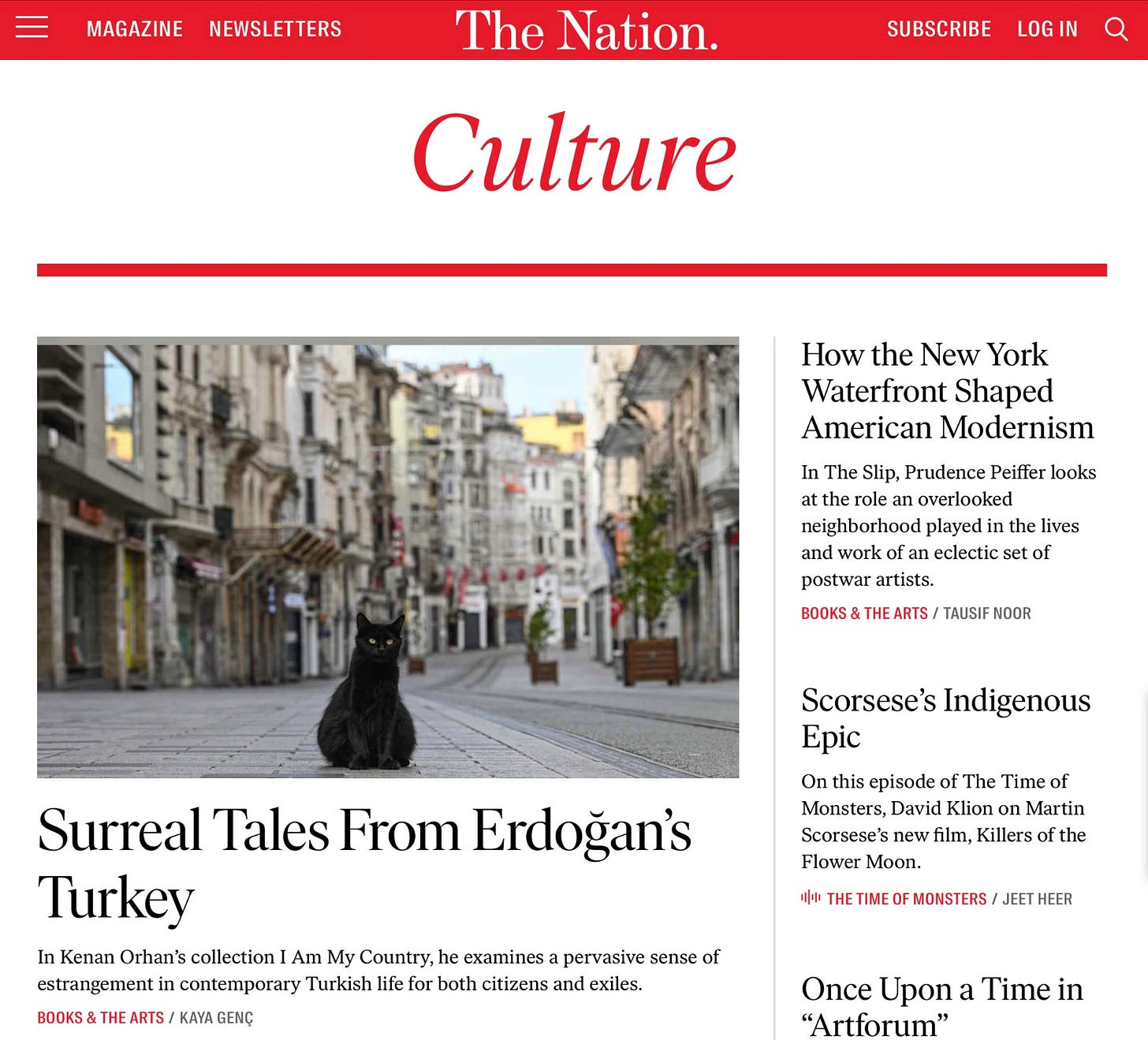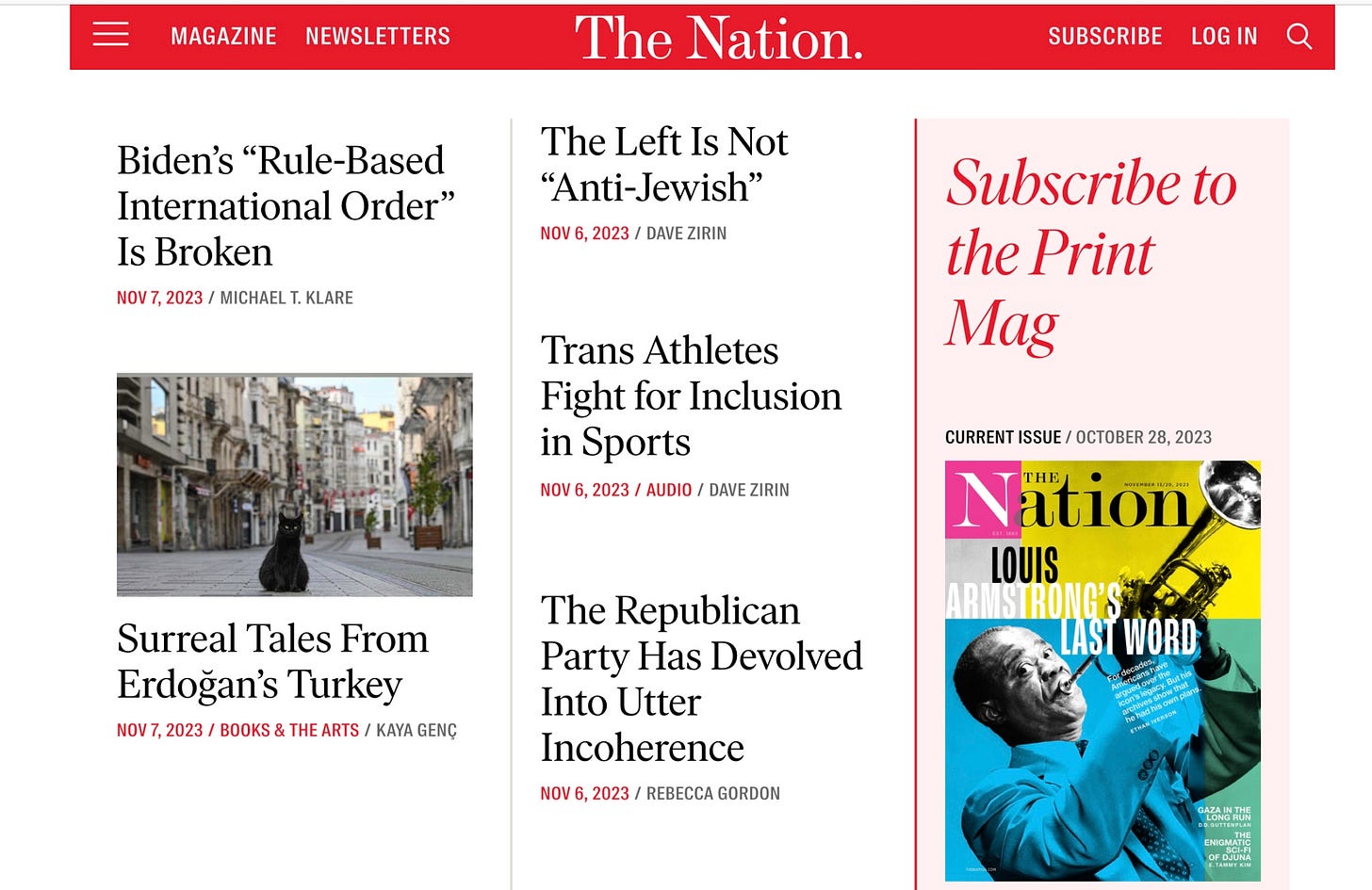Turkey at 100
What was Turkey? Musings on how to approach this country’s history on its centenary
As everybody knows, Turkey, the country, no longer exists.
It morphed into Türkiye circa 2022.
That desperate attempt at rebranding was no doubt instigated by the hotel chain owning entrepreneur-cum-ministers and other cronies of the Turkish president who wanted to kill two birds with one stone.
Those who defended the change argued that “Türkiye” was an anti-colonial answer to Anglophone Orientalism, etc. Others, who silently took the opportunity to use the new brand in endless advertising campaigns, were smarter. They profited immensely from the rebirth of a country’s name.
Yet I continue to call this country Turkey—I explained my reasoning for doing so on BBC in June last year.
As natives and frequent visitors will attest, Erdoğan’s “New Türkiye” (?) is quite different from the Turkey we came to know. In September, I had the good fortune to meet Misha Glenny, the rector of the Institute for Human Sciences in Vienna and the author of McMafia, who was visiting Istanbul with the BBC producer Miles Warde.
Misha and Miles have been producing this great programme for BBC Radio Four, titled “How to Invent a Country”. This year, they were exploring the Ottomans and the birth of Turkey, I learned. We sat down by the sea at Galata Port and I told them about growing up in the Turkey of the 1990s.
If you have time to listen all three episodes of this fine program, you’ll get a sense of what made the Ottomans so powerful and influential and why “New Türkiye” feels so conflicted about it.
Numerous friends have contributed to the series, including Christopher de Bellaigue, Suzy Hansen and Soli Özel. One common thread throughout the expert opinions is the heterodoxy of the Ottoman culture. At the same time, the programme highlights the violence behind the magnificence of Ottomans: the Armenian and Greek genocides in the 1910s, and the continuous advantages of being a Sunni while living in the imperial capital.
The “New Türkiye” we live in today is a contradiction.
It wants to severe ties with the Westernizing and Europeanizing ethos of Atatürk’s Turkey, and treat the West and Europe as its enemies.
At the same time, it loves the strongman culture of the early 1930s in Turkey: a leader could do so much in so little time, and not get entangled in the intricacies of a parliament or other instruments of democracy. Furthermore, the “New Türkiye” refuses to acknowledge the atrocities of the Ottoman era, including Selim’s massacres of Alevis in the sixteenth century. But it is ready to apologize for bad things that happened under Atatürk’s reign.
I was in Taksim Square recently, and saw this massive, Orwellian screen installed there to celebrate the republic’s centenary.
The propagandists were showing a film on that eye-shaped screen that mixed footage of Atatürk, Erdoğan, planes Turkish pilots flew in the 1930s and modern era fighter jets and drones used by the Turkish military.
I recall being moved while watching films about Atatürk in my youth (Can Dündar’s Sarı Zeybek comes to mind) but the centenary of the republic was a bland affair. It was reduced to a flurry of Atatürk-starring advertisements, produced by various banks, department stores, schools, football clubs, etc.
To understand what it feels like living in Turkey on its centenary, I recommend a break from social media, YouTube and public advertisements. Turn to books instead. In The Nation this week, I reviewed Kenan Orhan’s book, I Am My Country and attempted to explain how absurd and fantastical this country has become.
These days, only magical realism seems able to do justice to the New Türkiye.
Until next time,
—Kaya









